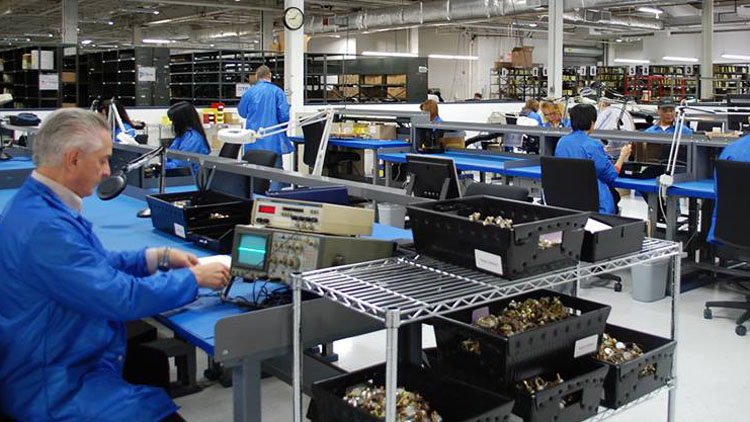This Labor Day most Americans will be taking a break from their bosses, but a small group of employees will be celebrating the fact that they are their own bosses because they belong to workers cooperatives.
It’s a democratic working arrangement that seems to be gaining more attention since Occupy Wall Street, although the concept actually goes back to the dawn of the labor movement. The idea made news in June when the New York City Council made the largest pledge of government support for worker cooperative business development in U.S. history by making a $1.2-million investment in such initiatives.
“Obviously, cooperatives didn’t just come out of Occupy Wall Street,” said Brendan Martin, founding director of The Working World, a Manhattan-based nonprofit organization that provides investment capital and technical support for worker cooperatives. “But it did help focus people’s energy and attention on alternatives… The whole movement was about questioning aspects of our economic system and who owns what. One of the key problems is how few own so much!”
One lively offshoot of the Occupy Wall Street was the creation of OccuCopy, a workers cooperative in Brooklyn, which started with a small group camped out in Zucotti Park who had discovered they had similar interests. Now it’s renamed Radix Media, a “full-service commercial print shot” with three members. It’s also a union shop—part of the Teamsters Local 1, the Amalgamated Lithographers of America. Their big project right now is helping the People’s Climate March produce material to publicize its nationwide event Sept. 21.
“We do a ton of stuff,” explained Lantz Arroyo, who was born in Rockville Centre and lived in Hempstead until he was four. But he got interested in workers cooperatives while he was living in Portland, Ore., before moving to New York City and joining up with his co-workers last summer. He loves the working arrangement.
“We’re not working for someone else and getting paid low wages while someone at the top is making more,” he told the Press. “We do find ourselves working on our days off and having meetings on our days off, but I think it’s definitely more fulfilling. It’s a great model for people who want to have a livelihood but don’t want to just make someone else rich while they’re struggling every day.”
WORKERS UNITE
All told, there are 29,284 cooperatives in the United States, excluding housing co-ops, but only 223 are directly worker-owned, according to John Duda, communications coordinator of the Democracy Collaborative, a Washington, D.C.-based nonprofit group, which promotes this worker-owned business model.
The U.S. Federation of Worker Cooperatives (USFWC), a national organization established in 2004, estimates that there are 300-400 worker-owned co-ops and “democratic workplaces” in the United States, employing 2,500-3,500 workers. A 2012 study by the Democracy At Work Institute, a USFWC affiliate, found that 71 percent of worker co-ops have fewer than 15 members. The largest worker co-op in the country happens to be the Cooperative Home Care Associates in the Bronx, which has 1,100 “worker-owners” out of it 2,300 employees, according to the USFWC.
“Cooperatives are a bigger part of the economy than most people realize,” Duda told the Press. “You’re talking about organizations that are democratically owned and controlled by their members. Those can be purchasing cooperatives, banking cooperatives, agricultural cooperatives, housing cooperatives, or worker cooperatives.”
Add in credit unions and employee-owned companies, and “about 130 million people in the U.S. are in cooperatives,” said Duda. “There’s 6 million more people in employee-owned companies in the United States than there are in labor unions in the private sector.”
Here on Long Island, the Bethpage-based Peerless Electronics became an employee-owned company as of May 30, 2012, when the Employees Stock Ownership Plan (ESOP) acquired 100 percent of the company from the estate of the late owner, Alvin M. Shankman, who had owned the firm privately since 1945. In a press release, Robert Levine, president and chief financial officer, wrote: “In today’s economic and business environment, it is especially important to note that we have secured the employee positions, maintained jobs on Long Island and will continue to be a strong business partner with our customers and suppliers.”
Peerless preserved its hierarchical structure, but the transition also kept the company alive. Duda says that creating worker cooperatives generally offers a better approach to economic development than typical government policy.
“You don’t give a corporate tax subsidy to somebody and hope they’ll create some jobs that will pay a living wage,” said Duda. “You give it to people who are running a democratically owned business. They tend not to vote to dissolve themselves or ‘offshore’ themselves.”
Subsidizing corporations, Duda said, “didn’t actually deliver the goods. We have greater inequality today than we did a couple of decades ago.”
Duda said that the New York City Council’s $1.2 million budget initiative to fund worker cooperative development targeted at low-income communities was a great step forward.
“Folks without assets don’t have the equity to start a business, so how do you get them those assets in a way that doesn’t exploit them?” Duda said. “Our organization focuses on how do we get worker cooperatives the business that they need? How do you build a larger framework for local policy that says: ‘Ok, we’ve got hospitals and universities; they spend billions of dollars a year, but they spend it outside the communities that they’re a part of.”
MEET THE NEW BOSS
The co-op concept is certainly getting wider attention, here and elsewhere.
“Our board had a huge discussion about cooperatives” last year, said Long Island Progressive Coalition Director Lisa Tyson. “They’re awesome!”
Her group is not-for-profit, so the business model doesn’t apply, but she thinks more people should consider it.
“When businesses are threatened, it’s a great way to keep the business alive and have the workers take on a different role,” she said.
Tyson said her group didn’t know of any functioning worker co-ops on Long Island. Attempts by the Press to find them in Nassau and Suffolk also came up empty.
Out in the Rockaways, it’s a different story, where two workers cooperatives are thriving—with more on the way.
“I think we’re planting the seeds for what could be a big change,” said Scott Trumbull, project officer for the Working World. He’s been involved in helping set up La Mies Bakery, which has four employees, and Roca Mia Construction, which has five. In the planning stages are a landscaping cooperative and a taxi service.
Of course, raising capital is the biggest hurdle for any business, let alone a cooperative. Thanks to the New York City Council’s recent $1.2 million pledge, the Working World got a $230,000 grant, which will have a direct impact on future cooperative development in Far Rockaway, Trumbull said. What differentiates their investment strategy from a typical start-up loan is that “we assume the risk,” he explained.
“We only recover our money from the profits the co-op generates,” he said. That’s why they are very rigorous with the co-ops they commit to helping.
“One of the most important things in co-ops is to have a really strong set of rules to guide the cooperative,” said Trumbull. “When someone is doing something that is not right, you can say, ‘Hey, this is not in compliance with the rules that we ALL agreed upon.’…It’s a big switch from being accountable to the boss to being accountable to the whole group.”
So what does a worker co-op do on Labor Day?
“We respect it!” said Trumbull with a laugh. “We will not be working!”
































